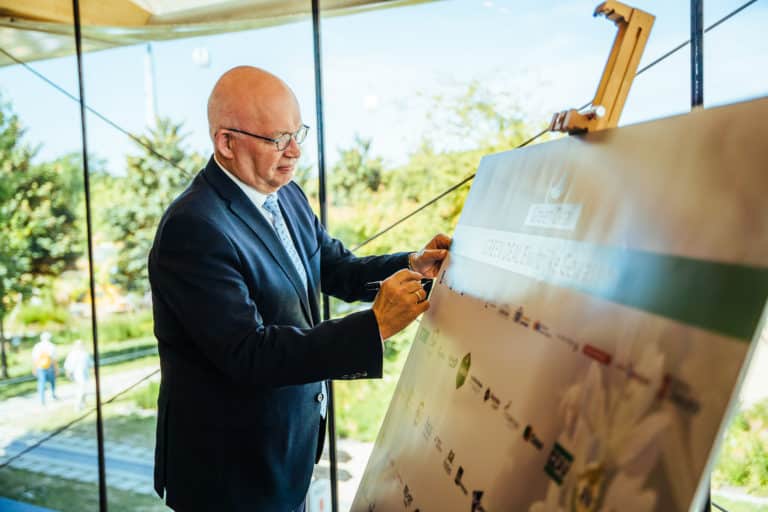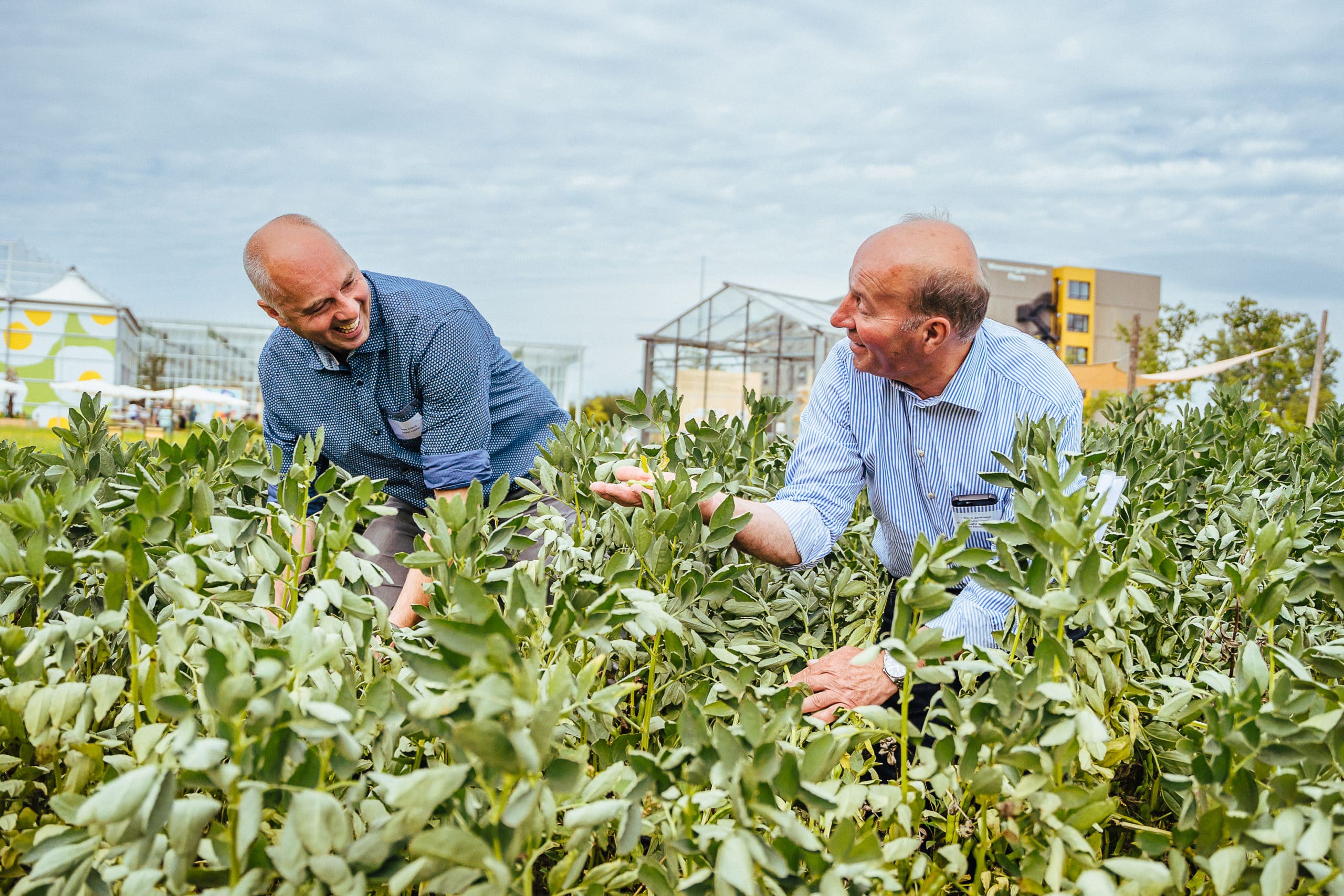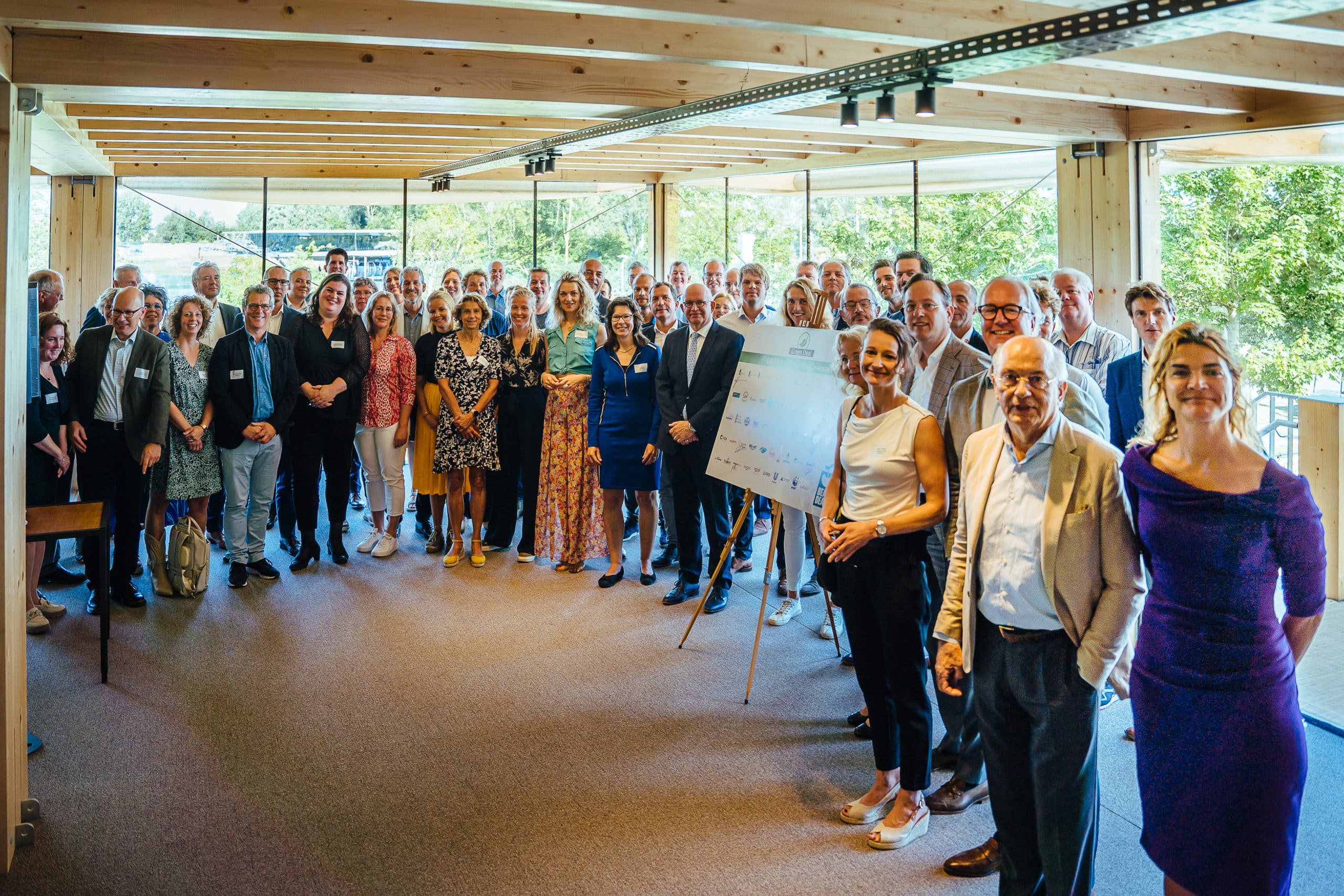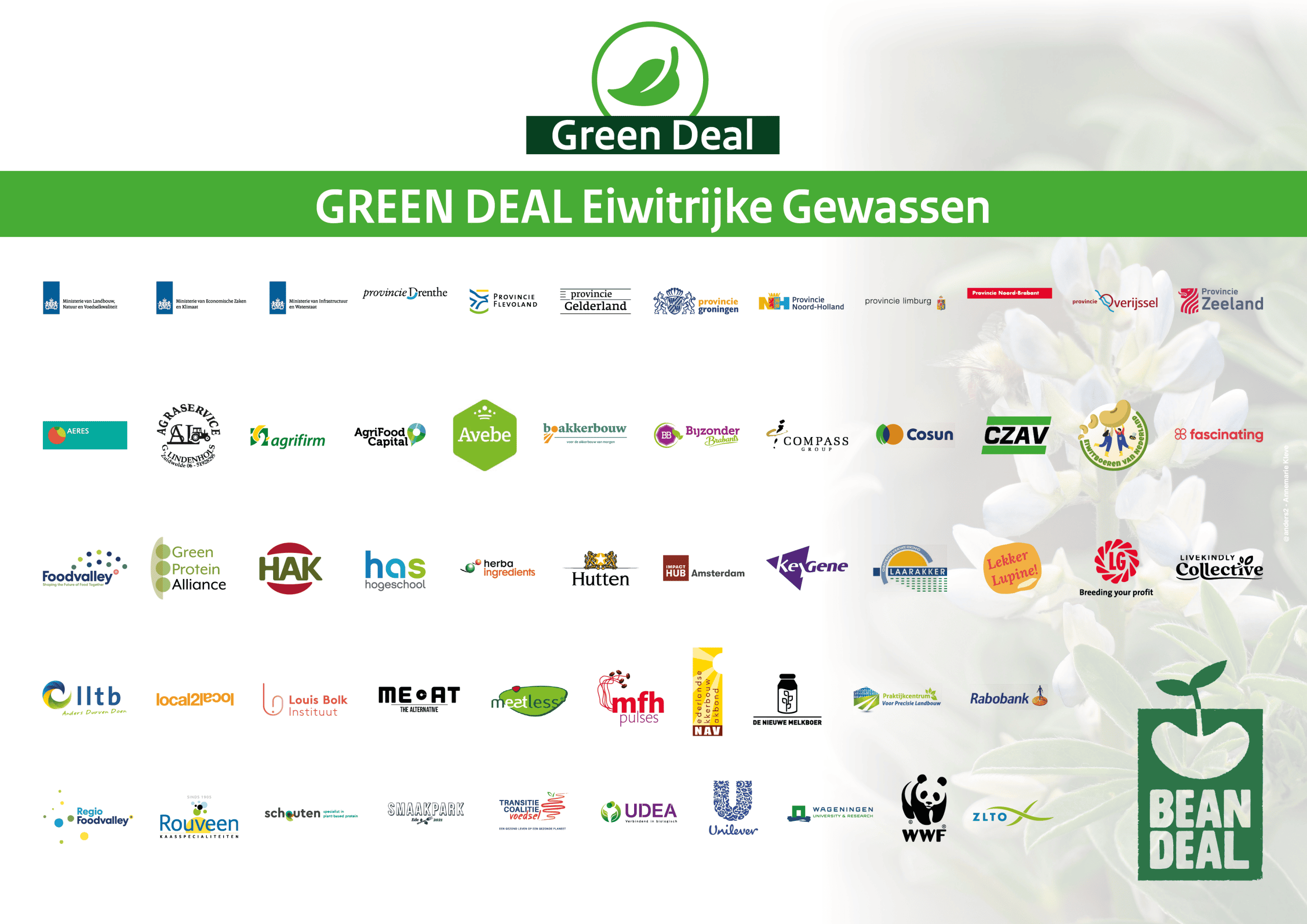National Protein Strategy
The deal is part of the National Protein Strategy, which was launched in 2020 and is aimed at increasing the self-sufficiency rate of proteins. LNV Minister Staghouwer signed the Deal and is enthusiastic: ‘With this Green Deal, we are putting our shoulders under a major challenge. It is now important that we turn our signatures into deeds. Together with all parties, we can turn a risky crop into a good business model and a useful crop for soil and biodiversity’.
Bean Deal
The deal was preceded by a broad stakeholder consultation. It led to a focus on leguminous crops for human food applications. Think of beans, such as field beans, lupine, soy and chickpeas, which can be used in pure or processed form in all kinds of foodstuffs for which there is a great demand. The ‘Bean Deal’, the name jointly chosen to give a face to the efforts of parties all along the chain, from farmers to caterers and from breeders to educational programmes. Marjolein Brasz, managing director of Foodvalley NL and chairman of the steering committee of the Green Deal on Protein-rich Crops: ‘Working on this deal has already brought about changes in the chain. It resulted in farmers uniting, farmers cooperating with caterers, processors with retailers. And with success: farmers united in a production organisation the Dutch Protein Farmers, a Dutch Fababurger was launched and a cooperation between a small protein farmer and a dairy giant started.
30 years
In 1992, the European Union agreed with the United States to abolish EU market protection for the cultivation of protein crops (Blair House Agreement). Since then, Dutch arable farmers have had to compete with cheap and often less sustainably grown foreign protein. Henk Janknegt, chairman of the Protein Farmers’ Association of the Netherlands and one of the signatories: “Many farmers are eager to grow these nitrogen-fixing crops, just as they were then. They know the value of these rotational crops for the soil, for biodiversity and for increasing yields. Only, the cultivation is not yet financially viable. 30 Years after the Blair House Agreement, the Dutch growers hope that the Green Deal for Protein-rich Crops, in cooperation with the government and the chain, will make cultivation financially attractive again.”
Chain optimisation
Breeders such as KeyGene and Limagrain are also participating in the deal. Together with research and educational institutions such as the Louis Bolk Institute, Wageningen University & Research, HAS University of Applied Sciences and Aeres, they are working on the development of new varieties that thrive better on Dutch soil. We are also looking at supplying products that meet the wishes of processors and consumers. The realisation of processing infrastructure requires long-term commitment; ideally, cultivation, processing and consumption should be as close as possible to each other. This deal has been initiated for the next ten years with the intention of continuing thereafter.
Appreciation
The Deal focuses on appreciation; not only for the arable farmers who are committed to the currently risky cultivation, but also among consumers. To this end, participating parties such as Rabobank, Compass Group, Hutten, Udea/Ekoplaza and the World Wildlife Fund are launching campaigns to make it attractive and easy for all Dutch people to put home-grown vegetable proteins on the menu.
More information
- Are you interested in using protein-rich ingredients from Dutch soil in your products? Mail to info@foodvalley.nl.
- Want to stay informed about the latest developments and be part of the protein transition? Become Foodvalley The Protein Community Partner
- Download the Green Deal Protein Crops




